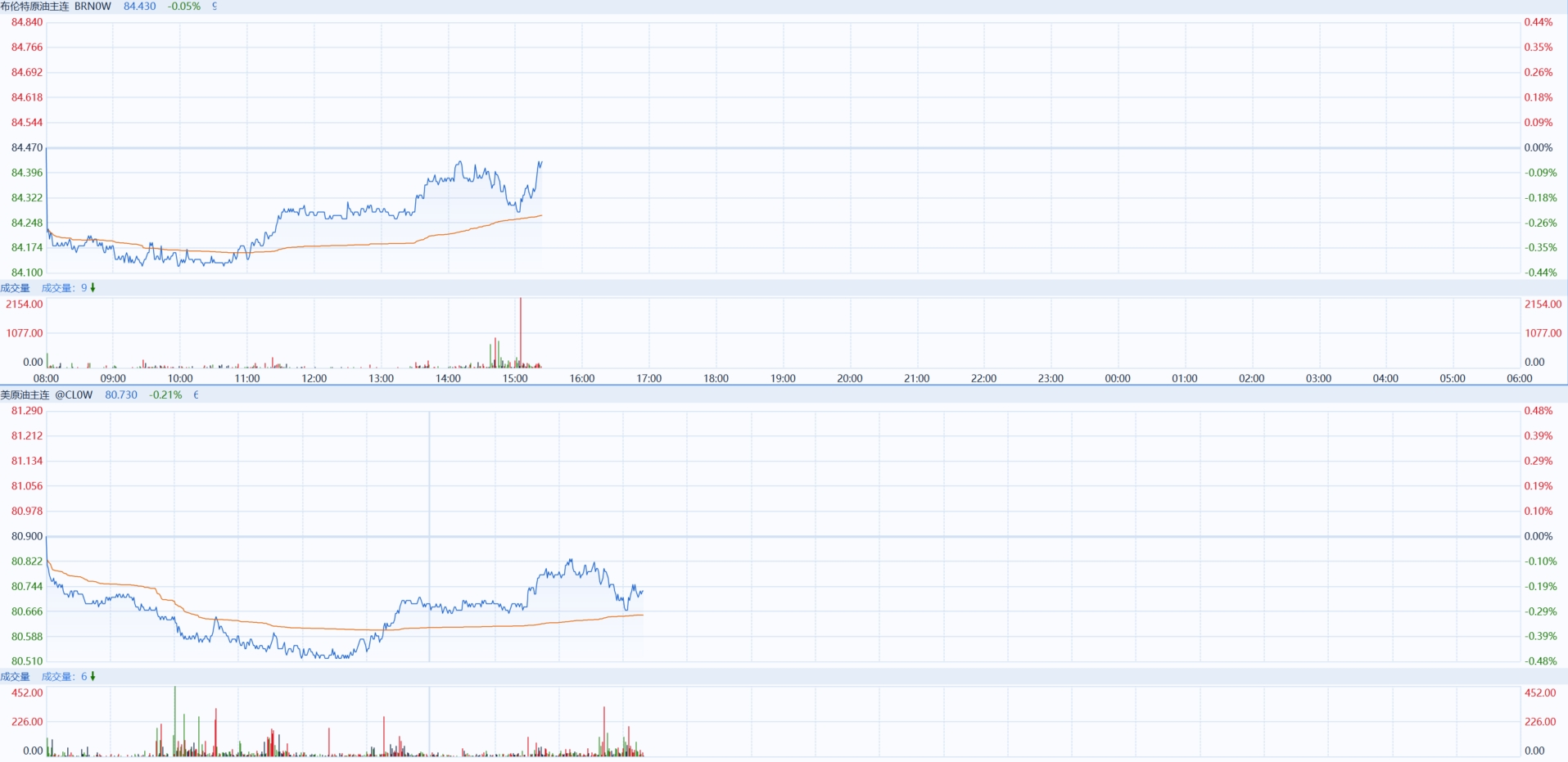U.S. crude oil accumulation reveals weak summer demand, market turns to focus on PCE data
In the market, traders are concerned about weak gasoline consumption during the peak summer driving season in the United States.
On June 27, in the early Asian market, international oil prices fluctuated and weakened due to the build-up of US crude oil and gasoline inventories. On Wednesday, the main WTI crude oil futures rose by $0.07, or 0.09%, to $80.9 per barrel; Brent crude oil futures rose by $0.25, or 0.3%, to $84.47 per barrel; INE crude oil futures fell by 0.16% to 618.9 yuan. Additionally, the rise in the US dollar index also put pressure on oil prices.

However, from a monthly perspective, oil prices are expected to close higher this month, and the next quarter is traditionally a strong season for oil prices, which may rise further. Moreover, the upcoming election results in Iran and France could further exacerbate oil price volatility.
Specifically, according to the inventory data released by the US Energy Information Administration (EIA) on Wednesday, US crude oil and gasoline inventories increased last week, while distillate inventories declined.
By category, as of the week ending June 21, US crude oil inventories increased by 3.6 million barrels to 460.7 million barrels, while analysts had expected a decrease of 2.9 million barrels; US gasoline inventories increased by 2.7 million barrels to 233.9 million barrels, while analysts had expected a decrease of 1 million barrels; distillate inventories, including heating oil and diesel, decreased by 400,000 barrels to 121.3 million barrels, while the market had expected a decrease of 300,000 barrels. The EIA also stated that US net crude oil imports increased by 65,000 barrels per day during the week.
UBS analyst Giovanni Staunovo said that while US inventories are rising, inventories in other regions are declining. He noted that oil markets vary across regions, and last week we observed a reduction in oil inventories in Japan and Europe, which gives a sense of market tightening, with the exception of the US.
In the market, traders are concerned about weak gasoline consumption during the US summer driving season. Public data shows that the US, which accounts for 10% of global oil consumption, experienced weak demand last week. US gasoline demand last week was down 3.6% year-on-year to about 8.9 million barrels per day. Financial market spreads also indicate an oversupply, with the prompt spread for WTI falling from last week's high of $1.15 to around $0.72; meanwhile, the WTI Midland spot price has dropped to its lowest level since October.
Analysts suggest that before the release of US PCE inflation data this week, the market is expected to maintain a conservative attitude towards oil prices. The May PCE data is one of the most important data points for the Federal Reserve and will directly influence the Fed's future rate cut plans. On Tuesday, Federal Reserve Governor Bowman stated that maintaining policy rates stable "for some time" may be sufficient to control inflation, but she also reiterated her willingness to raise borrowing costs if necessary.
Currently, according to CME's "FedWatch," the probability of the Fed maintaining rates unchanged in August is 90.7%, with a 9.3% chance of a 25 basis point cut. The probability of the Fed maintaining rates unchanged by September is 37.2%, with a cumulative 25 basis point cut probability of 57.3%, and a cumulative 50 basis point cut probability of 5.5%. Fed officials recently predicted a total of 125 basis points of rate cuts by the end of 2025.
Today, the market needs to pay attention to the US first-quarter GDP data and the first US presidential debate. Additionally, the market should watch for changes in US initial jobless claims and the monthly rate of durable goods orders for May.
·Original
Disclaimer: The views in this article are from the original Creator and do not represent the views or position of Hawk Insight. The content of the article is for reference, communication and learning only, and does not constitute investment advice. If it involves copyright issues, please contact us for deletion.